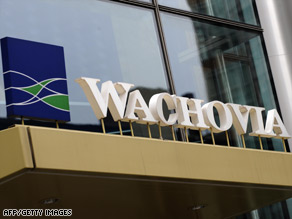Debit card fees bite into child support payments
- Story Highlights
- Virginia is one of two dozen states that use debit cards to distribute child support
- Fees include 50 cents for telephone balance inquiry, $2.75 at out-of-network bank
- Lawyer advises against using debit cards: "They will nickel-and-dime you to death"
- Child-support recipients in Virginia can choose debit cards, direct deposit or checks
- Next Article in U.S. »
CNN Special Investigations Unit
TROUTVILLE, Virginia (CNN) -- For the past year, Donna Chamberlain has worked at a fuel center here in Virginia's Roanoke Valley. It pays roughly half of what her old job did, but after being out of work for 14 months, she feels lucky to have it.

Wachovia, which distributes the debit cards, would not comment on how much it receives for their use.
Adding to her concerns, she and her husband, Steve, are now the custodial parents of their 7-year-old special-needs grandson, Cayden. The family needs every penny it can collect.
So when state officials replaced the roughly $40-a-week child support check with a debit card, Donna read the fine print -- and left it on the table.
"It was automatically generated, and had my name on it," she told CNN. "This thing had 10 fees." Watch Chamberlain discuss the hidden fees ![]()
Virginia is one of two dozen states that use debit cards as one means of distributing child support payments, a move that allows them to reduce the amount of money spent issuing and mailing checks.
But the fees attached to the debit cards can accumulate quickly: 50 cents to make a telephone balance inquiry; 65 cents to make an ATM withdrawal after two free withdrawals are taken; and $2.75 if the card is used at an out-of-network bank.
Chamberlain found one charge particularly galling. North Carolina-based banking giant Wachovia, which distributes the funds on Virginia's behalf, said it would deduct $2.50 from her account for more than one face-to-face visit at one of its banks.
"If you should go to the bank teller window, you get to go once a month," she said. "But if you want to talk to anybody about your money more than once a month, it's going to cost us $2.50 to walk in the door of the bank."
Don't Miss
Wachovia would not comment on how much it receives from the program, and referred CNN to Virginia state officials. But with an increasing number of states turning to debit cards to distribute money for programs such as child support, the fees attached to those cards are drawing criticism from consumer advocates.
"These cards can come with hidden fees, subject to identify theft and unauthorized charges," said Lauren Saunders, an attorney with the National Consumer Law Center in Washington.
"And, unlike a credit card, you don't get a regular statement, so you can't check on these charges. Some of them have gotchas like overdraft fees that are added on. So, there's dangers, and if these cards are structured unfairly, they can be a problem."
Many recipients aren't aware of the fees, even though they are usually sent a list of the charges along with a new debit card, Saunders said.
Virginia allows child support recipients to receive payment via debit card, direct deposit or check. But it has been pushing the use of debit cards since 2006, said Nick Young, the head of Virginia's Department of Social Services. In 2008, approximately $279 million in child support payments were distributed via the Wachovia debit cards.
Young told CNN that he had no idea how much money Wachovia made from debit card fees, but said most of them could be avoided with "wise" use of the cards.
"I will admit that if somebody takes their $300 out, $10 at a time, they will in essence defeat the purpose of the card," he told CNN. "And they will suffer."
In 2008, about 52 percent of child support recipients used direct deposit, Young said. A little more than 41 percent chose debit cards. Only 1,877 people chose to get money by check last year in the state, he said.
Virginia also uses debit cards to distribute state retiree payments, and it is one of 30 states to use them to pay unemployment benefits, according to the U.S. Department of Labor.
In a CNN report on the practice earlier this month, the Labor Department said debit cards are safer and more secure than checks, allow the unemployed to avoid check-cashing fees and frees them from keeping excess cash around.
In Pennsylvania, divorce attorney Susan E. Murray advises clients in her state to turn down the debit cards for child support.
"They will nickel-and-dime you to death," she said. "If someone is getting $200 a month in child support, the fees really start cutting into their money."

The program is "horrible" for families, she said. "It's a win for the state, it's a win for the bank, but the kids lose. Children are the losers under this program. It's unconscionable."
Back in Virginia, Chamberlain's debit card is still stuck to the letter the state sent to her home. She'll stick with a check, thank you.
All About Wachovia Corporation • Child Custody

 Sit tight, we're getting to the good stuff
Sit tight, we're getting to the good stuff